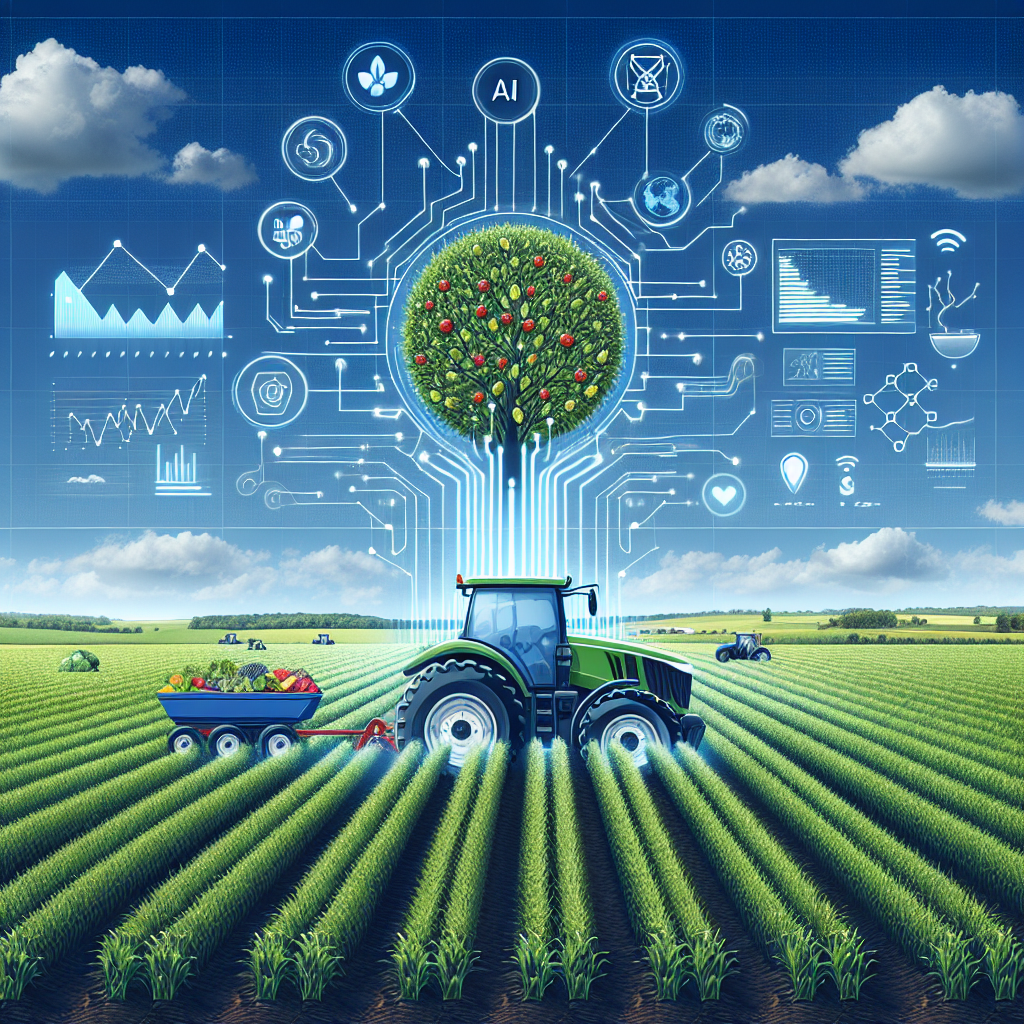The agriculture industry has seen significant advancements in recent years with the integration of artificial intelligence (AI) software. AI technology has revolutionized the way farmers approach their work, providing them with valuable insights and tools to optimize crop production, improve efficiency, and minimize environmental impact. In this article, we will explore the benefits of AI software in agriculture and how it is transforming the industry.
1. Increased Efficiency
One of the key benefits of AI software in agriculture is the increased efficiency it provides to farmers. AI algorithms can analyze large amounts of data, such as weather patterns, soil conditions, and crop health, in real-time. This information allows farmers to make data-driven decisions about planting, irrigation, fertilization, and pest control, leading to improved crop yields and reduced waste.
AI-powered machinery, such as autonomous tractors and drones, can also help farmers automate labor-intensive tasks, such as planting, spraying, and harvesting. This not only saves time and resources but also allows farmers to focus on more strategic aspects of their operations.
2. Precision Agriculture
AI software enables farmers to practice precision agriculture, a farming approach that uses technology to optimize inputs and maximize outputs. By utilizing AI algorithms, farmers can create detailed maps of their fields, identifying areas that require specific treatments, such as irrigation, fertilization, or pest control.
This targeted approach helps farmers optimize resource use, reduce costs, and minimize environmental impact. By applying inputs only where they are needed, farmers can improve crop yields while reducing the use of water, fertilizers, and pesticides.
3. Predictive Analytics
AI software can analyze historical data, weather forecasts, and other factors to predict future trends and outcomes. This predictive analytics capability allows farmers to anticipate potential challenges, such as pests, diseases, or adverse weather conditions, and take proactive measures to mitigate risks.
For example, AI algorithms can analyze data from sensors placed in the field to predict when crops are likely to be ready for harvest. This information helps farmers plan their harvest schedule, optimize labor resources, and ensure that crops are harvested at the peak of their quality.
4. Crop Monitoring
AI software can monitor crop health and growth in real-time, using sensors, drones, and satellite imagery to collect data on plant health, nutrient levels, and water stress. This information allows farmers to detect early signs of disease or pest infestations and take corrective actions before they spread.
By monitoring crops continuously, farmers can identify problems quickly and implement targeted solutions, such as adjusting irrigation levels or applying pesticides in specific areas. This proactive approach helps farmers protect their crops and maximize yields.
5. Sustainability
AI software can help farmers adopt more sustainable practices by optimizing resource use, reducing waste, and minimizing environmental impact. By analyzing data on soil health, weather patterns, and crop performance, AI algorithms can recommend strategies to improve soil fertility, conserve water, and reduce greenhouse gas emissions.
AI-powered machinery, such as electric tractors and autonomous drones, can also help farmers reduce their carbon footprint by using clean energy sources and minimizing fuel consumption. By adopting AI technology, farmers can contribute to a more sustainable agriculture industry and protect the environment for future generations.
FAQs
Q: How does AI software benefit small-scale farmers?
A: AI software can benefit small-scale farmers by providing them with access to advanced technology and insights that were previously only available to large commercial farms. By using AI algorithms to optimize inputs, monitor crop health, and predict outcomes, small-scale farmers can improve their yields, reduce costs, and compete more effectively in the market.
Q: Is AI software expensive to implement?
A: While AI software can require upfront investment, the long-term benefits outweigh the costs for many farmers. By improving efficiency, increasing yields, and reducing waste, AI software can help farmers generate higher profits and achieve a return on their investment. Additionally, there are now affordable AI solutions available for farmers of all sizes, making it more accessible than ever before.
Q: Can AI software replace human labor in agriculture?
A: While AI technology can automate certain tasks and improve efficiency, it is unlikely to replace human labor entirely in agriculture. Farmers will always be needed to make critical decisions, monitor operations, and respond to unexpected challenges. AI software should be seen as a tool to enhance human capabilities and support farmers in their work, rather than as a replacement for human labor.
In conclusion, AI software is transforming the agriculture industry by enhancing efficiency, enabling precision agriculture, facilitating predictive analytics, monitoring crop health, and promoting sustainability. By utilizing AI technology, farmers can optimize their operations, increase yields, reduce costs, and minimize environmental impact. As AI continues to advance, its potential to revolutionize agriculture and feed a growing global population becomes increasingly evident. Farmers who embrace AI software will be well-positioned to thrive in the future of agriculture.

